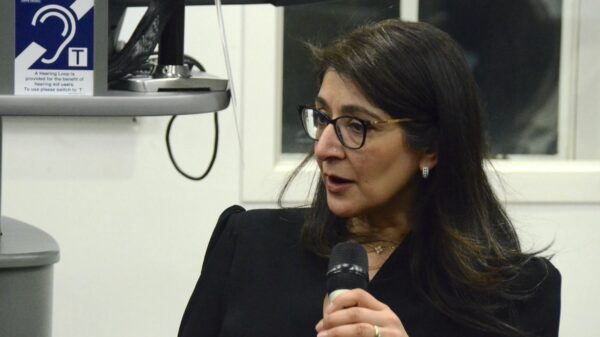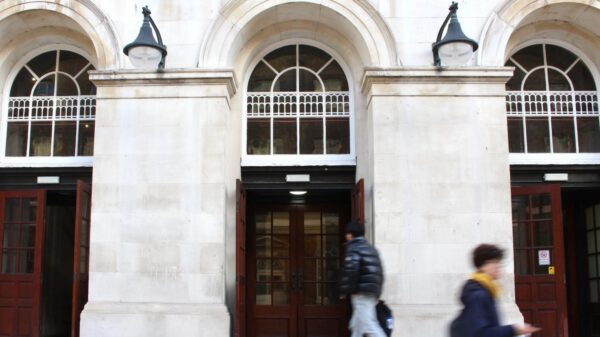Staff Writer Polly Symes shares her first experiences of Substack, a platform for engaging with long-form written-content.
When I was about 14, I started a book blog. Painstakingly crafted on Wix, I naively expected it to explode in popularity and for the whole world to be dying to know my 14-year-old opinions on ‘Tess of The D’Urbervilles’. Needless to say, my only subscribers were my mother, my father and my sisters. Determined not to give in, I switched strategy: Instagram was to become my new calling as a ‘book blogger’. However, I was soon disillusioned by the Bookstagram life – the affordances of the platform prioritised image over text, putting too much pressure on my poor photography and not enough emphasis on the words I wanted to write: words that would somehow have to fit into a short, snappy caption. And then Instagram Reels was introduced and the algorithm changed forever. At its peak, pollyblogsbooks had just over 200 followers. “No one even wants to read long pieces anymore”, I thought glumly as I renamed my profile as the more personal Polly Rose Hope.
How wrong I was.
A couple of weeks ago, I was lucky enough to attend a talk given by Farrah Storr MBE, Head of Writer Partnerships for Substack UK and Europe and an alumnus at King’s College London. It was at this event that I first heard of Substack. Storr depicted the platform as a counterpoint to the slashing of journalists from big publications and social media’s fixation with short-form content. Then, more recently, a guest lecture from Ella Darlington (digital marketing specialist) on the world of PR was the final push I needed to begin my own Substack. So now I’ve got my own profile, and am so happy for that!
My name is Polly, I am 19 years old. By July I’ll be 20. My generation is known as Generation Z or Gen Z. We are the ‘digital natives’, the ‘social media addicts’ and the ‘chronically online’, infamous for our frazzled attention spans and lack of social skills. However, given the choice, we would likely have wished for a childhood before social media. The public discourse is often critical of our dependency on TikTok/Instagram/X, conveniently skipping over the part where these mediums were handed to us as barely-adolescents and then cemented into our brain chemistry during the COVID-19 pandemic. It is our fate to be enslaved to the technology made by older generations, much like it is our luck to bear the brunt of the climate crisis.
And what’s it like being a Gen Z university student in London, you ask? For the most part, it’s incredible. The culture, the political alertness, the sense of an endless happenings? Intoxicating… But simultaneously, it’s very isolating, with feelings of ‘doing university wrong’ never far away. Students at the University of London are scattered across an area double the size of New York City, where having supper at your friend’s house can demand major logistical planning and, as members of Generation Z, our brains have been programmed to respond to this by turning to social media (for the reasons outlined above). So we doomscroll in the morning as we chew our porridge, in the afternoon as we line up outside lecture theatres, and in the evening as we slurp on our spaghetti. Social media kills our time and helps “connect” us, according to Zuckerberg. But in reality, it creates negative comparisons, distraction from our actual degrees and then guilt for said distraction. And that’s without even mentioning that social media has been proven to increase the risk of depression and anxiety.
What we need, and perhaps what we unknowingly search for, is a way of properly engaging with and feeling part of the world around us, in all of its chipped magnificence. A way, or a medium, with the space to fully finish a sentence. A medium that is meaningful, that carries meaning. As soon as I began reading the articles and essays on Substack, I knew that I had stumbled upon that realm.
Furthermore, as an aspiring writer, it is so incredibly refreshing to discover something beyond the ‘writing is dying’ rhetoric that is being peddled in our ChatGPT-saturated world. Platforms such as Substack convey that writing is not at all dead – writing is having a brilliant rebirth and evolving into something with the space for romanticism, for slow-reads on a Sunday, for the wholesome, for the dark, for the mundane, for our words. Words, words, words: the most advanced technologies made by mankind.
I guess, what I’m trying to say is: “thank you, Substack”. I see what you are doing. And I’m so grateful to have found you.
First year undergraduate at King’s College London studying Culture, Media and Creative Industries.











